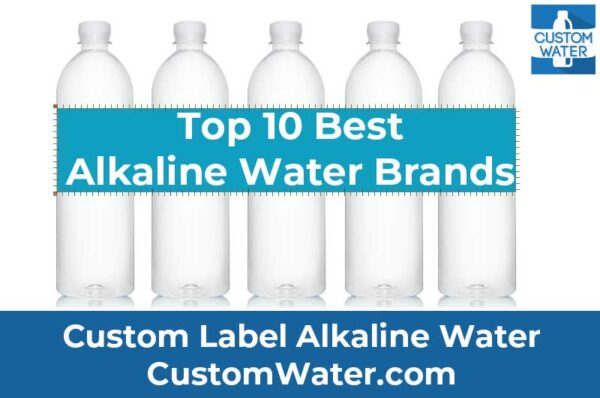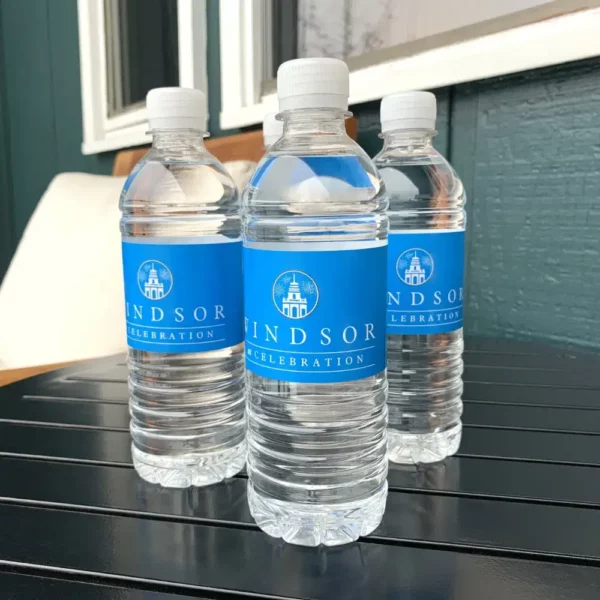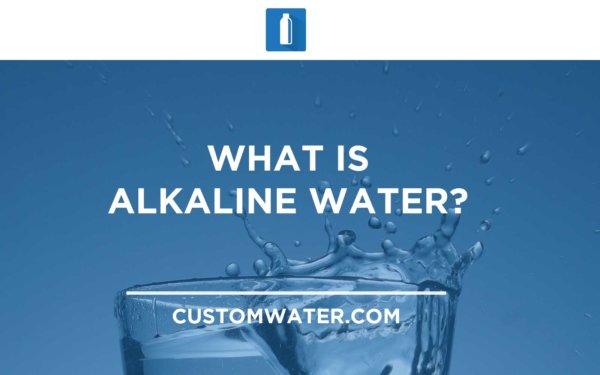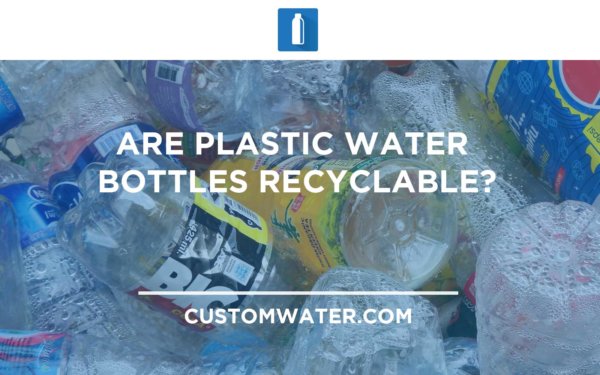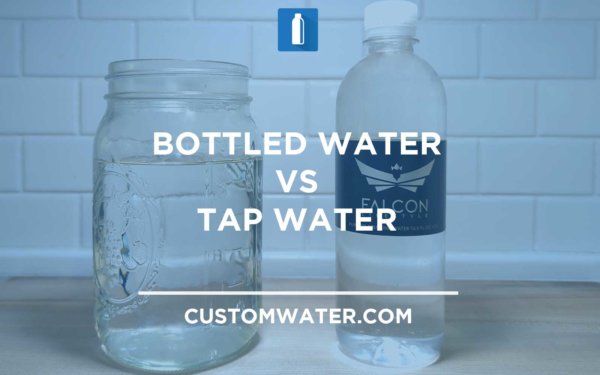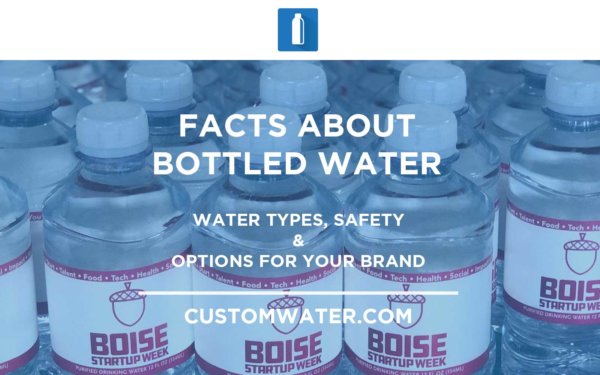Debunking Common Myths and Misconceptions About Bottled Water
Myth 1: Is it true that bottled water leaches chemicals?
No. People worry about chemicals leaching and toxicity from plastic water bottles. This concern is not warranted. At CustomWater.com we use BPA-Free water bottles meaning that harmful chemicals are not leaching into your water container. Our Alumium bottles include a food grade liner that protects the water contents from the container. In addition, our facilities are SQF (Safe Quality Foods) certified.
The U.S. Food and Drug Administration regulates bottled water. High standards are set for filtration, packaging, to distribution and enforces standards of quality and identity regulations to ensure the potability of bottled water products. The agency sets a maximum level of chemical, microbial, radio-logical, and physical contaminants allowable in bottled water. These standards insure that your bottled water is safe to drink.
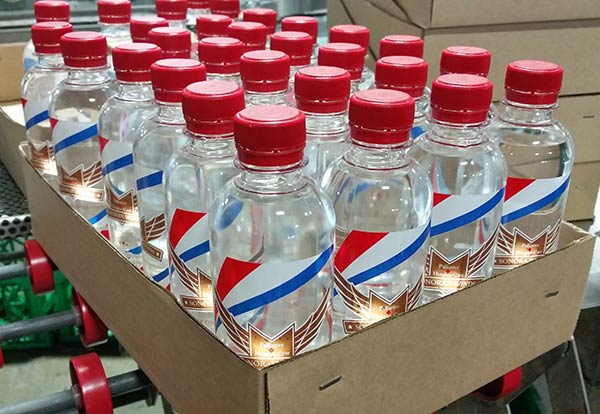
Myth 2: Is Bottled water really just tap water?
Bottled water comes from both municipal sources (drinking water) as well as natural sources, but bottled water and tap water are not created equal.
Like all drinking water, tap water undergoes municipal filtration to eliminate water impurities and harmful contaminants. However, aside from filtration, bottled water passes through additional processes to reach the standards set by the FDA.
These processes may include:
Reverse osmosis: This process removes contaminants from unfiltered
water. Pressure forces the water through a semipermeable membrane
that allows water molecules to pass through while filtering contaminants dissolved in the water.
Distillation: During distillation, water is heated to a boiling point to
produce steam. The steam is cooled and condensed into a purified liquid called the distillate.
Ozonation: Also known as ozonization. Ozonation is a chemical water
treatment method that infuses ozone into water. Ozone water treatment reduces contaminants through the ozone’s oxidative strength and removes taste, color, and odor.
Deionization: Positively charged and negatively charged ions are
removed from water during deionization. These ions give false results in
scientific testing and are corrosive to metals and metal alloys.
Ultraviolet disinfection: UV light penetrates and destroys water
pathogens, killing illness-causing microorganisms. The process does not
add chemicals like chlorine to the water and does not affect the water’s
taste, color, and smell.
In addition to our purified water option, we also offer naturally sourced waters. Remember, bottled water may come from either a municipal source or a variety of natural sources, such as wells, streams, dams, and rainwater tanks, but it goes through rigorous filtration and purification processing before they are considered safe for drinking.
Myth 3: Is it true that bottled water is harmful to the environment?
Approximately 1.5 billion plastic bottles are used per day around the world. While this number is staggering, more and more countries, companies, and individual households have found ways to reuse and recycle plastic water bottles.
Many pieces of clothing are made of recycled materials. Polyester, the primary component to Fleece, is prevalent in tee shirts, sweatshirts, gym clothing, baby diapers, blankets, and high performance outerwear is all made from recycled plastic. Fleece is preferred to natural materials due to the materials high efficiency in retaining warmth while at the same time being moisture resistant.
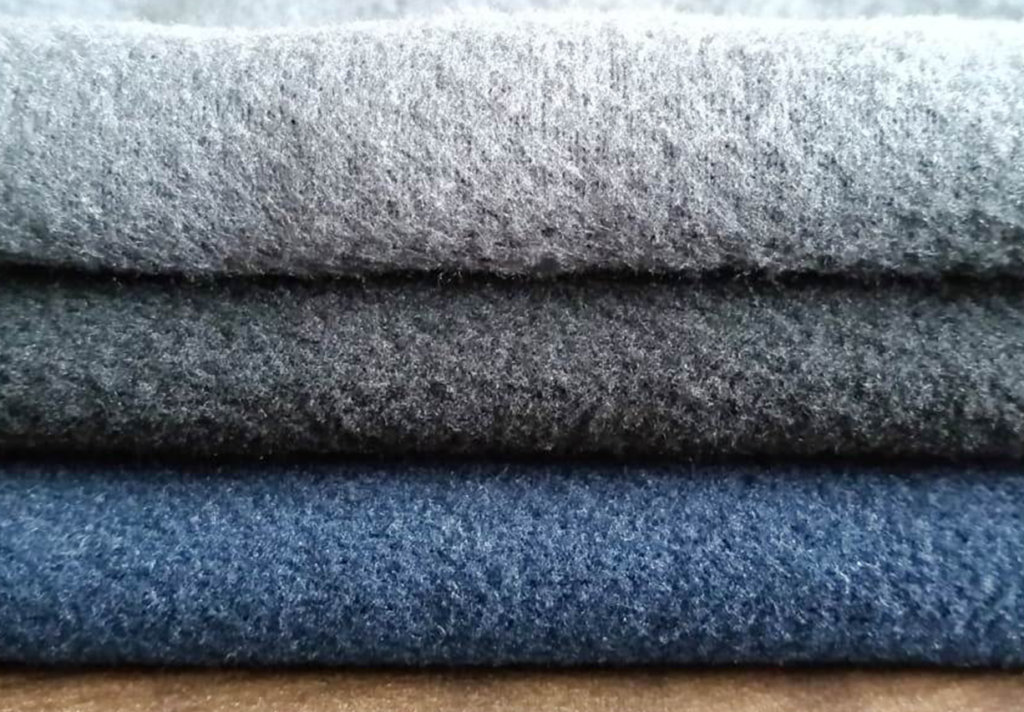
India started an environmental revolution by using 1,600 tons of plastic waste to pave 620 miles of road. A company called TechniSoil has recycled plastic to fortify and re-pave existing roads. Many households reuse plastic water bottles at home. In short, there is no reason for water bottles to wash into the ocean or pile up in landfills. A little creativity and innovation go a long way to reuse and recycle water bottles.
All these things considered, is bottled water safe for drinking?
Absolutely!
CustomWater can guarantee safe and clean bottled water. Whether you are looking for purified, electrolyte enhanced, alkaline or spring water, we utilize a state-of-the-art purification system for our custom labeled bottled water and ensure all our products are BPA-free and FDA certified.
Contact CustomWater for your clean and safe bottled water!

